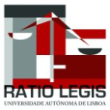CHARTER OF THE INTERNATIONAL RESEARCH NETWORK ON TRANSNATIONAL ORGANIZED CRIME
Lecturers and researchers from several Portuguese and foreign universities, as well as legal professionals will meet at Universidade Autónoma de Lisboa Luís de Camões (UAL) on the thirty-first of May two thousand and twenty two for the conference SIECO II – Seminário Internacional: Estudos de Criminalidade Organizada Transnacional (International Seminar on Transnational Organized Crime) within the scope of the R&D project Corpus Delicti – Estudos de Criminalidade Organizada Transnacional. This research project is being conducted at the research centre Ratio Legis – Centro de Investigação e Desenvolvimento em Ciências Jurídicas at UAL.
The presentations included in the seminar will evidence studies conducted on a phenomenon that undermines the rule of law and democracies. The topics include criminal liability of legal entities, the reforms on substantial and procedural criminal law in view of organized crime, the influence that studies on criminal policy and on crime have on policies of persecution and legal securitarian and justicialist changes, human trafficking, illegal drugs trafficking, firearms trafficking, terrorism, corruption, cryptocurrencies, money laundering, technology, cybercrime, obtaining, preserving and processing criminal evidence, and international legal cooperation. These are current relevant criminal issues and include a list of crimes committed by criminal organizations and criminal gangs which must by further and thoroughly studied in the next few years in order to deepen and broaden substantial and procedural framework, as well as crime prevention and enforcement actions.
Considering that only science may assist and guide the policy decision-maker and the policy manager to plan, design, approve and implement policies on preventing transnational organized crime, which is rooted in mass crime, as well as on enforcing actions against it, this charter represents a scientific commitment to bring closer R&D studies and projects from different universities, present the referred projects and their results and discuss them so that they can be translated into legal and non-legal proposals aiming to prevent both crime in general and transnational organized crime.
Considering that this Charter is an academic and scientific tool for different cultural, legal, political, economic and social perspectives represented by the members of this group, we aim to provide a scientific space for free discussion of legal policy matters, of interpreting and implementing legal regulations derived from the referred policies and their results in the actual life of citizens and communities.
Considering that communities look forward to a better, freer, more just, more supportive and more humane living, that transnational organized crime undermines the ethics and the values of democracy, academia must open the paths and identify and overcome the obstacles imposed to a legal-political, legal-economic-financial and legal-social system based on the value of human dignity.
Considering that criminal policy implies different perspectives, different fields of knowledge and different practices, it is crucial that the International Network includes scholars, legal practitioners – judges, attorneys, prosecutors, lawyers, and police officers – actors within the informal control authorities, actors within the economic and financial systems, as well as actors within international relations and political science of the several network members.
Considering that meeting the objectives of an International Network requires scientific maturity in terms of tautology and methodology, as well as having a head office, we hereby express our commitment to draft the scientific statute of the International Network, which we aim to design and implement in the next few months and have approved on the twenty-third and twenty-fourth November twenty twenty-two at this University, the head office of the International Network.


